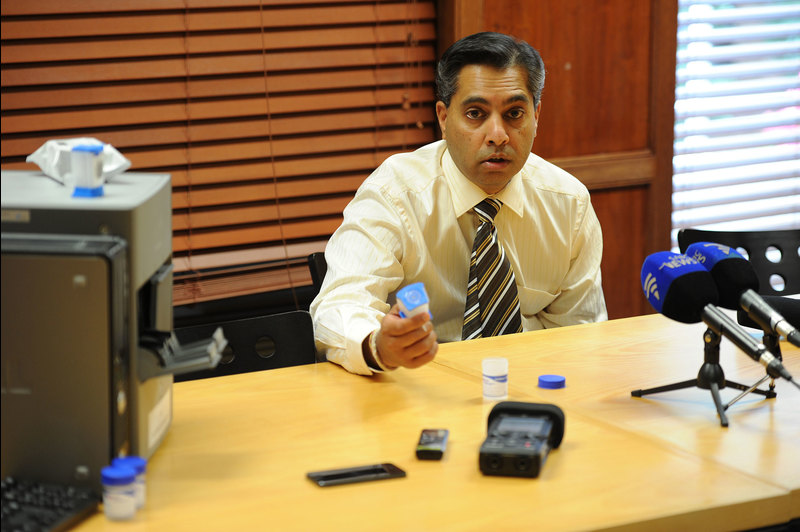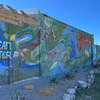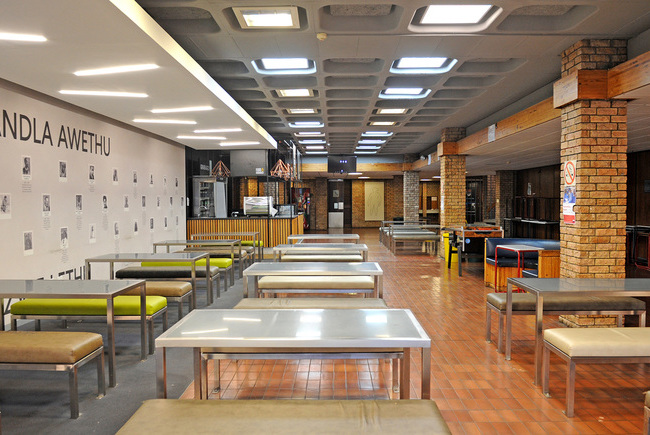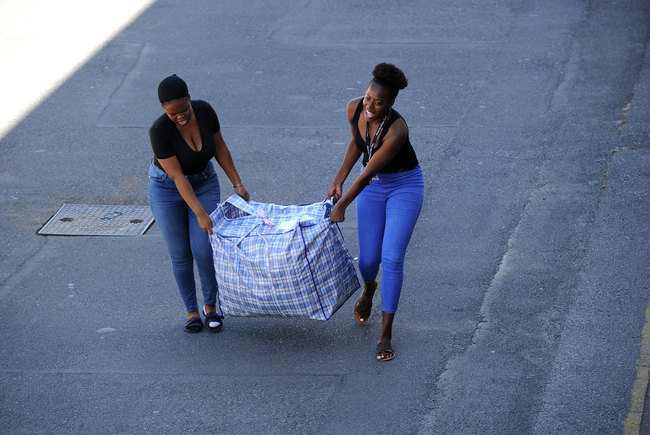COVID-19: Considerations, controversies and challenges in South Africa
06 May 2020 | Story Carla Bernardo. Photo Michael Hammond. Read time 7 min.
Celebrated University of Cape Town (UCT) researcher Professor Keertan Dheda recently co-authored an article on the approaches, techniques and controversies associated with the diagnosis of the Coronavirus Disease 2019 (COVID-19).
The article, “Diagnosis of COVID-19: considerations, controversies and challenges in South Africa”, forms part of a special COVID-19 issue of the Wits Journal of Clinical Medicine, published in late April, and was co-published with editorial permission in the African Journal of Thoracic and Critical Care Medicine.
Dheda’s co-authors are his colleagues from the Centre for Lung Infection and Immunity (CLII), based at the UCT Lung Institute, doctors Shameem Jaumdally, Malika Davids, Phindile Gina, Anil Pooran, Edson Makambwa, Ju-Wei Chang and Ali Esmail; Lancet Laboratories’ Professor Eftyxia Vardas; and Stellenbosch University’s Professor Wolfgang Preiser.
“This information will likely translate into better patient outcomes and improved control of the epidemic.”
In the article, Dheda and his co-authors outline an approach to considering the diagnosis in those who present with respiratory symptoms, address challenges such as those posed by disease stage and costs, the complex laboratory infrastructure required for different types of tests, and the challenges in obtaining specific types of biological samples. They also provide an overview of the different types of tests and technologies that can be used for detecting COVID‑19, caused by severe acute respiratory syndrome coronavirus 2 (SARS-CoV-2).
Dheda, head of the CLII, explained that because diagnostics of COVID‑19 is part of a “rapidly changing landscape”, this kind of collaboration by researchers and institutions is important for the development of better and more streamlined methods for the diagnosis of the disease.
He added that more sensitive and reliable frontline tests, which are less costly and less complicated, are needed. The utility of different testing approaches, such as genomic versus antibody-based tests, also needs to be unravelled, and completely new approaches to diagnosis need to be developed.
“This information will likely translate into better patient outcomes and improved control of the epidemic,” said Dheda.
Specific considerations
He explained that there are many infectious and non-infectious causes of shortness of breath when patients present to healthcare facilities. In some of these cases, this may be due to non-infectious causes. In others, this may be due to pneumonia, which has several causes such as influenza, other viral pathogens, bacterial pneumonia and tuberculosis (TB).
“In our setting, TB remains an important cause of acute lower respiratory tract infection, otherwise called pneumonia,” he said.
“Given the limited testing capacity, a clinical approach is required to select patients for COVID-19 diagnostic testing.”
But specific considerations concerning COVID‑19 pose some challenges.
An example of this is that close contacts of those with COVID-19 might contract the disease but might not have any symptoms. Alternatively, Dheda explained, symptoms may develop, but patients do not require hospitalisation or respiratory support; this is known as early-stage disease.
“The diagnosis can be missed, and repeat testing may be required.”
In this early phase, genomic tests, which detect the genetic material of the virus, have a false negative rate of between 30 and 40%.
“The diagnosis can be missed, and repeat testing may be required,” said Dheda.
He added that the genomic test, also known as reverse transcription polymerase chain reaction (RT-PCR), remains the frontline diagnostic test for symptomatic persons, but it requires complex laboratory infrastructure and a turnaround time of a few hours. The genomic test is therefore not generally a rapid point-of-care (POC) test which can produce a result within a short space of time at the site where treatment or care-related decisions are made.
Approaches and platforms
Newer POC genomic platforms have also been developed, including tests developed by companies like Abbott and Cepheid. The latter’s GeneXpert testing platform is especially relevant to South Africa because there is already widespread and established infrastructure to use these types of test cartridges.
A test cartridge is a ‘lab in a matchbox’, which enables a biological sample to be inserted into a small cartridge containing all the ingredients for a PCR reaction.
“There is a fully automated platform that can determine whether a patient has TB, COVID‑19, or influenza – depending on which test cartridge is used,” Dheda explained.
He added that the cartridge can be used in portable battery-operated systems that they have been using in scalable mobile clinics.
“We will be using this approach for community-based testing in the Klipfontein and Mitchells Plain districts of Cape Town,” he added.
Further challenges
A further challenge is obtaining biological samples; it is a trade-off between convenience and sensitivity, Dheda said.
Using sputum samples is associated with much higher test sensitivity, but these samples are more complicated to obtain and are associated with higher infection control risks. In contrast, obtaining nasopharyngeal samples – from the back of the upper part of the nose – is associated with less infection control risks, but sensitivity is lower.
Dheda said that a completely different type of technology detects antibody responses to the SARS-CoV-2 virus. In response, various testing platforms and devices have emerged; many are rapid POC tests and are cheap and convenient to use.
However, these platforms and devices have their problems. He explained that many of these tests may be falsely negative in those who are symptomatic in the early phase, the first week, of the disease.
“Exactly how to combine the POC antibody-based tests and the genomic tests are currently the subject of intensive research,” he said.
“We are also unsure whether everyone develops an antibody response robust enough to protect them when exposed to infection again.”
The antibody-based tests are useful for surveillance studies and generating ‘immunity passports’, which may be useful for determining who receives the vaccine, or whether essential or frontline workers can return to their jobs.
But, said Dheda, the concept of immunity passports has not yet been validated, and whether having COVID‑19 once renders somebody immune and at very low risk of a second infection remains unclear.
“We are also unsure whether everyone develops an antibody response robust enough to protect them when exposed to infection again,” he said.
It remains to be seen whether SARS-CoV-2 disappears within a year or two like the SARS outbreak in 2003, or whether it will evolve, resulting in recurrent waves of infection like what happens with influenza.
“Only time will tell.”
 This work is licensed under a Creative Commons Attribution-NoDerivatives 4.0 International License.
This work is licensed under a Creative Commons Attribution-NoDerivatives 4.0 International License.
Please view the republishing articles page for more information.
UCT’s response to COVID-19 in 2021
COVID-19 is a global pandemic that caused President Cyril Ramaphosa to declare a national disaster in South Africa on 15 March 2020 and to implement a national lockdown from 26 March 2020.
UCT is taking the threat of infection in our university community extremely seriously, and this page will be updated regularly with the latest COVID-19 information. Please note that the information on this page is subject to change depending on current lockdown regulations.
Commemorating a year of COVID-19
At midnight on 26 March 2020, South African went into the first nationwide hard lockdown. A year later, we remember those who have died and those who have been affected by COVID-19, as well as the pandemic’s effects across society and campus. We are especially grateful for the front-line health workers who have done so much for so many.
Frequently asked questions
In an email to the UCT community, Vice-Chancellor Professor Mamokgethi Phakeng said:
“COVID-19, caused by the virus SARS-CoV-2, is a rapidly changing epidemic. [...] Information [...] will be updated as and when new information becomes available.”
We are continuing to monitor the situation and we will be updating the UCT community regularly – as and when there are further updates. If you are concerned or need more information, students can contact the Student Wellness Service on 021 650 5620 or 021 650 1271 (after hours), while staff can contact 021 650 5685.














